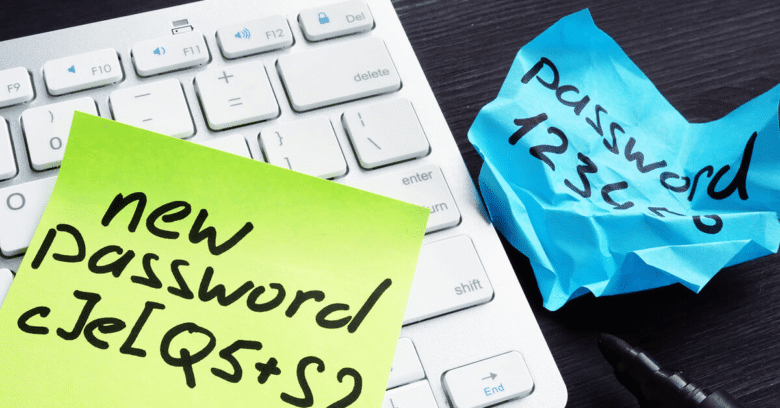In the digital age, passwords are the most important way to protect yourself from online risks. The passwords you choose for your email, social media, banking, or work accounts affect the security of your data. Many people don’t realize the importance of strong passwords. They often choose combinations that are easy to remember. However, weak passwords are one of the most common ways hackers compromise accounts. Today, we store much of our personal and financial information online, making strong passwords essential for digital security.
The Dangers of Weak and Reused Passwords
Weak passwords pose one of the biggest online security risks. Many people still use simple combinations like “123456” or their name, which are straightforward for hackers to guess. Using the same password for multiple accounts further exacerbates the situation. If hackers compromise one account, they can use the same password to compromise all linked accounts. This chain reaction can lead to money theft, identity theft, and data theft. One of the most important ways to protect your online security is to avoid weak and repetitive passwords.
What Makes a Password Strong
A strong password is one that cannot be easily cracked by brute force or guessing. It should be long enough—at least 12 characters—to contain a combination of numbers, letters, and special symbols. Furthermore, avoid dictionary words, personal information, and easily guessed patterns. A strong password should be so unique that it takes hackers years to crack it. Taking the time to create a secure password is like strengthening your digital door lock.
The Role of a Password Manager
Remembering many strong passwords can be difficult, especially if you have accounts for work, shopping, banking, and social networking. This is where a password manager becomes invaluable. A password manager securely stores all your passwords in one place and helps you create strong ones. This allows you to set a different password for each account without having to remember them all. A reliable password manager not only improves your online security but also makes password management easier and faster.
How Hackers Exploit Weak Passwords
Hackers can compromise accounts in many ways, and weak passwords are particularly vulnerable. Brute-force attacks try millions of possibilities until they find the right one. Dictionary attacks exploit the fact that people often choose popular words or phrases as passwords. When people share personal information online, such as birthdays, pet names, or favorite sports teams, social engineering exploits this. These tactics work best when passwords are simple to guess and remember. These methods are much less effective when you use strong passwords, which also protects you from cybercrime.
Why It’s Important to Change Passwords Regularly
Even strong passwords can be risky if used for too long. Data breaches do happen, and sometimes companies don’t notify users immediately. If your data is compromised, changing your passwords regularly can reduce the risk of long-term exposure. Regular password changes can also lessen the impact of account hacks. By regularly changing your passwords, you keep your digital security up-to-date and make it harder for hackers to hack your accounts. Making a habit of changing your passwords is a small but important benefit.
Combining Two-Factor Authentication with Passwords
Strong passwords are important, but they’re even more effective when combined with two-factor authentication. This feature makes logging in more difficult by requiring a verification code on your phone or generated by an app. This method means that even if a hacker steals your password, they can’t access your account. They need a second form of authentication. Two-factor authentication and strong passwords work together to protect your data by adding an extra layer of security.
The Future of Password Security
As technology changes, so do the ways we protect our accounts. Passwords remain the most common way to verify your identity, but biometrics like fingerprint scanning, facial recognition, and voice authentication are becoming increasingly popular. Until these new methods completely replace older ones, strong passwords remain the best way to keep your digital life secure. While better security measures may become available in the future, setting and maintaining strong passwords will always be crucial.
Conclusion
Using strong passwords is crucial for digital security. They are the main deterrent against hackers, identity thieves, and online fraud. Weak and overused passwords put you at risk in many ways, while strong, unique passwords protect your accounts and information. Using a password manager, regularly updating your passwords, and enabling two-factor authentication are all ways to improve your online security. As we spend more and more time online, it’s crucial to keep your passwords secure. By making smart decisions and following good practices, you can protect your personal information and maintain a more secure online experience.
FAQs
1. Why are reliable passwords so important?
Strong passwords play a crucial role in preventing account hacking and unauthorized access to valuable information.
2. How can I keep my passwords safe?
A strong password should be long and unique, containing letters, numbers, and symbols, making it difficult to guess or crack.
3. Can I use the same password for multiple accounts?
No, using the same password for multiple accounts is more dangerous. If someone hacks one account, they can also hack all the other accounts that use the same password.
4. How often should I change my password?
You should update your password every few months, or immediately if you suspect any unusual behavior on your account.
5. Please confirm if password managers are effective.
Yes, password managers can securely store and generate strong passwords, making it easy to use a different combination for each account.




